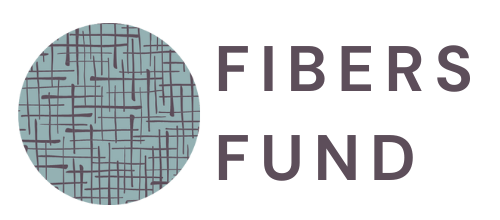Sustainable Fibers and Textiles
Funders interested in the food system, sustainable agriculture, soil health, carbon sequestration, environmental health, and economic justice have many compelling reasons to expand their focus to the fiber and textile system.
Food and fibers—including both plant-based fibers like cotton and hemp and animal-based products like wool and leather—are both part of an interconnected system with many linked impacts on health, social justice, and the environment.
Recognizing these critical connections, Sustainable Agriculture and Food Systems Funders (SAFSF) has played a leading role in the development of funder interest and information-sharing on the intersections between sustainable agriculture and food systems and fiber systems since 2013. The SAFSF Special Project on Sustainable Fibers and Textiles launched in 2019 to build on this momentum.
Integrated Capital Fibers Fund
Since the project’s launch, one recurring theme has been the significant capital gap faced by U.S.-based fiber producers and processors. Currently, “market-rate” returns from global textile industry investments actually reflect a risky reliance on the global oil and gas industry as a feedstock, the pervasive use of extractive labor practices, and a host of externalized social and environmental costs. At the same time, U.S.-based fiber producers and processors struggle to access capital to pioneer more just, equitable, and regenerative practices. The SAFSF Fibers Roadmap and its 12 Case Studies (see below) mapped these financing gaps across a range of fibers and geographies, and the Roadmap report called for the creation of an integrated capital fund to deploy a full range of financing types for the fiber sector.
Earlier this year, the SAFSF Fibers team began working under an MOU with our partners at Fibershed’s Regional Fiber Manufacturing Initiative to develop and launch the Integrated Capital Fibers Fund. We are working with Mission Driven Finance as our implementing partner for the fund, drawing on their detailed expertise in launching and managing community-based funds.
The ICFF is being designed as a $10M flexible and catalytic financing vehicle tailored to the needs of smaller U.S. natural fiber and textile producers and processors, with a specific focus on environmental equity. We aim to have the Fibers Fund asset pool set up this fall and look forward to sharing more updates soon! Contact us for more info: Sarah Kelley, fibers@safsf.org.
SAFSF Sustainable Fibers Farm Bill Platform—Policy Options
Sustainable fibers — produced by farming operations that use sustainable cropping or grazing systems, or other systems and practices beneficial to natural ecosystems — play a major role in the U.S. agricultural economy. This can include plant-based fibers like flax, hemp, and cotton, animal-based products like wool, alpaca, and leather, and natural dye products like plant extracts.
Yet, these crops and the small to midsize farmers and ranchers who produce them, are often overlooked in current U.S. agricultural policy. At the same time, petroleum-derived fibers (polyester, nylon, and other synthetics) now make up over 64% of global fiber production. In other words, nearly two-thirds of all the fibers we wear and use are made from oil. Rebuilding and revitalizing U.S. sustainable fiber production and processing, known as “reshoring,” can address this trend.
The upcoming 2023 Farm Bill provides a key opportunity to integrate sustainable fibers more directly into federal agricultural policy to expand eligibility and access for small and midsize fiber farmers and ranchers. As is the case with U.S. agricultural policy as a whole, this need is particularly critical for fiber farmers who are Black, Indigenous, Latinx, Asian, and otherwise marginalized by a lack of access to federal resources.
The following policy options include no-cost tweaks — those that would not require new congressional appropriations — that could be made to existing farm bill programs, including some at the regulatory level, to address the gaps and levers identified in the SAFSF Fibers Roadmap and by our partners. In addition, the Sustainable Fibers Revolving Loan Fund Pilot Program would be a new provision that would help close the gaps that exists in accessing capital and technical assistance specifically designed for sustainable fiber producers. Full document is available below.
To learn more please reach out to Clare Fox, executive director.
The Sustainable Farms, Fibers, and Forests Act of 2023
Senator Ben Ray Luján (D-NM) has introduced The Sustainable Food, Farms, and Fibers Act, to include support for sustainable fibers in USDA’s Local Agriculture and Market Program (LAMP). SAFSF worked closely with Senator Luján’s office in developing this bill and we are thankful for his leadership. You can view a summary of the bill here and the full text here.
Senator Luján’s office has posted the press release for this bill, which includes a quote from our own Senior Director of Public Policy, Traci Bruckner. We are also grateful to Dave Nezzie, Food & Agriculture Policy Officer at the Thornburg Foundation, and New Mexico Secretary of Agriculture Jeff Witte for sharing supportive quotes.
Resources
The Fibers Roadmap: Integrated Capital Opportunities to Support Revitalization of U.S.-Grown Fiber, Textiles, and Leather
2020 SAFSF report lays out a seven-year vision for values-based investment and funding needed to support regenerative fiber agriculture and revitalize U.S.-based textile processing and manufacturing.
Case Studies from the Fiber System
Full case studies of the innovative, place-based fiber system businesses highlighted in The Fibers Roadmap.
Common Threads: U.S. Foundation Opportunities in Sustainable Fiber and Textiles
2017 SAFSF report on history and background of how the food and fiber systems are interconnected.
In The News
Sustainable fashion looks forward to the Biden era Vogue Business
Investors like sustainability. But they forget about nature Vogue Business
Stay Informed
We encourage potential partners interested in supporting this work to contact Sarah Kelley or Clare Fox.
Funders and investors are welcome to join our email list to stay informed about this work.
